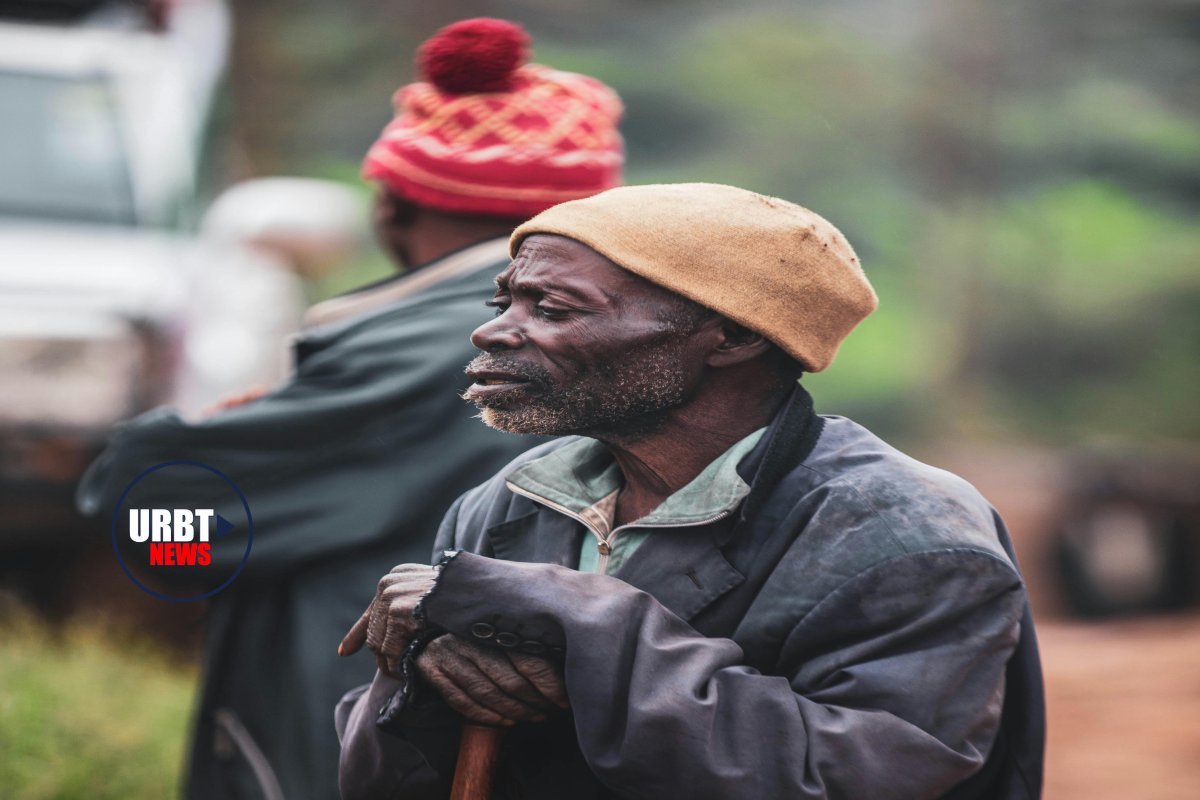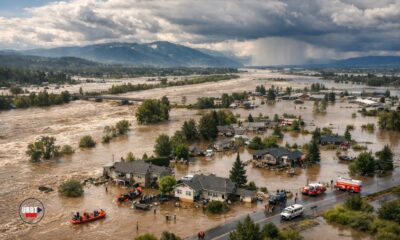
Black People Are Affected By Climate Change
Community
Black People Are Affected By Climate Change
Published
2 years agoon

Black People Are Affected By Climate Change. Devastating wildfires, brutal heat, intense hurricanes, and extreme flooding are on the rise due to climate change, reports the McKinsey Institute. The frequency, severity, and intensity of hazardous weather across the United States are increasing as a direct result. The National Oceanic and Atmospheric Administration (NOAA) estimates that between 2018 and 2022, the U.S. experienced 90 disasters each causing over $1 billion in losses. These disasters have resulted in total costs exceeding $621 billion, marking a 48 percent increase in the number of disasters per year. Additionally, there was a 37 percent increase in costs compared to the preceding decade. So far, 2023 is proving to be the costliest year yet when it comes to weather-related disasters.
Download the URBT News App from your App store. Apple / Andriod
Climate change’s impacts, such as property damage, loss of labor productivity, and health problems, are growing concerns. Prolonged exposure to heat, lack of clean water and air, and displacement when homes become uninhabitable are significant issues. These impacts threaten Black socioeconomic mobility in the United States more than other groups. Black populations are particularly vulnerable to physical hazards because they often reside in areas highly susceptible to extreme weather. As people and businesses transition to a low-carbon economy, they face additional risks, such as job losses in affected industries.

Maps are essential tools for assessing climate change impacts. By examining these maps, we can see how extreme weather and chronic climate changes may affect Black socioeconomic mobility. We have mapped the Black population against physical climate risk across the entire United States. Regional maps focus on several Southeastern states and two metropolitan areas with histories of segregation and redlining. These maps provide crucial insights into how climate change could impact Black communities.
The deep impacts of climate change make it critical to help communities adapt and build resilience. Each year, as climate change effects become more evident, we have the chance to ensure an inclusive response. Equitable adaptation to climate hazards and a just climate transition are necessary to address the disproportionate impacts on Black communities.
To manage the primary and second-order risks for Black communities created by climate change, several approaches are necessary. Both the public and private sectors should start by considering broad education on the impacts of climate on communities. Understanding the implications of climate risk on intergenerational wealth transfer, especially on housing, is vital. Community leader engagement from Black communities is essential as states plan for climate adaptation and a lower-carbon economy transition.
Financial inclusion of Black communities is crucial as stores, banks, and factories adjust their footprints and operations to address climate risks. Equitable access to finance and opportunities to integrate Black entrepreneurs in green economy innovation hubs is important. Climate change presents significant physical risks for Black populations in the U.S., but it also offers opportunities to address existing racial gaps.
A concerted effort to understand the impact of climate risk on Black workers, business owners, consumers, savers, and residents can help. Such efforts can assist both the private and public sectors in identifying racial gaps and enabling timely adaptation. Building resilience against physical risks and ensuring equitable access to climate finance opportunities are key outcomes. By doing so, we can support Black communities in managing the risks and seizing the opportunities presented by climate change.

The impacts of climate change are profound and widespread, affecting all aspects of life. Addressing these challenges requires comprehensive and inclusive strategies that prioritize vulnerable communities. Through collaboration and targeted action, we can mitigate the effects of climate change and foster socioeconomic mobility for Black populations in the United States.
Submit your release to URBT News Click Here
Black People Are Affected By Climate Change
Joseph Collins CEO of Urban Television Network Corp.

You may like
-


Washington State Reels from Historic Flooding After Atmospheric River Storms
-


Why More Men in Their 30s Are Choosing Not to Have Kids
-


Tokyo to Host Groundbreaking ‘Industrial Energy Green Transition 2024’ Summit on December 3-5, 2024
-


Winter Sports Equipment Market: Established Key players Will Try to Generate New Growth Opportunities in 2021-2031
-


Electric Two-Wheeler Market Size is Expected to Reach USD 109.5 Billion By 2032 | CAGR: 11.5%
-


Presidential Hopeful Joseph Collins Jr. Proposes Comprehensive Plan to Tackle Threats to the Department of the Interior

